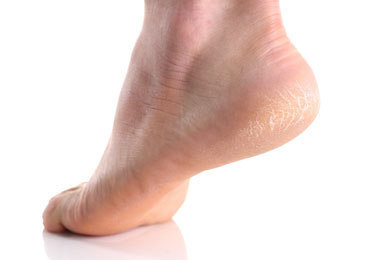
- Vegetable oil: Vegetable oils contain vitamins such as provitamin A, D, and E, and fats and are readily absorbed by the skin, which will help nourish the skin, create new cells, and heal cracked feet. Before going bed, first, clean your feet thoroughly and then dry them using a soft towel. Apply a thick layer of vegetable oil to your heels, toes and on the cracked parts of your feet, and wear a pair of thick socks overnight.
- Banana Foot Pack: Banana is a natural skin moisturizer as it contains vitamins A, B6, and C, which all help to maintain the elasticity of the skin and keep it hydrated. Coconut oil are loaded with natural enzymes that help to encourage cell turnover and moisturize skin. Make a foot mask using bananas, or by mixing bananas with coconut oil. Mash 2 ripe bananas into a smooth paste and gently rub the paste all over your feet, including the nail beds and sides of the toe. Keep it on for 20 minutes and after that rinse your feet with clean water. Or, mash a banana and combine it with 2-3 tbsps of coconut oil and apply it on your cracked heels. Let it sit for 20-30 minutes and then wash your feet with warm bath (no soap) and pat dry. Use this mask every night before going to bed for 2 weeks or until you are satisfied with the results.
- Aloe vera: Aloe vera contains vitamins A (beta-carotene), C, and E and soothes dry and dead skin effectively. The amino acids present in it are responsible for the skin-softening action and it heals the ridges and cracks that have formed and increases collagen synthesis. Soak your feet in warm water, and scrub using a pumice stone to remove dead skin. Pat dry, and apply a thick layer of aloe vera gel to your feet. Wear cotton socks and leave the gel on your feet overnight. Repeat this every night for 4-5 days to see the results.
- Honey: Research shows that honey has antimicrobial and antibacterial properties that promote wound healing. Honey is also a moisturizer and can work as a natural remedy for cracked heels. Its soothing properties help revitalize the skin. Honey can be used either as a scrub after soak your feet or applied as a foot mask overnight.
- Epsom salt: Epsom salt softens the skin, reduces inflammation and also soothes tired feet. Add half a cup of Epsom salt to warm water in a foot basin and soak your feet in it for 15 minutes. Scrub to remove dead skin. Repeat this exfoliation process 2-3 times a week.
- Oatmeal: Oatmeal used along with vegetable, coconut, or olive is another great remedy for exfoliating cracked heels. Oatmeal has anti-inflammatory and moisturizing properties that help remove dead skin cells and soften the skin.
Mix 1 tbsp of powdered oatmeal with 4 to 5 drops olive oil and make a thick paste. Apply this over your feet, especially over the cracked areas of the heels. Leave it on for about half an hour. Rinse off with cold water and pat dry. Apply this exfoliating mask every alternate day till the results appear.
Here are some measures to prevent cracked heels:
- Use a good moisturizer on your feet at least once a day.
- Apply heel balm in the morning to increase skin elasticity before you start your day
- Wear footwear with a robust, wide heel that supports and protects your heels
- Avoiding excessively hot showers and harsh soaps
- Avoiding peeling or shaving calluses, especially if you are diabetic, as it can cause infection
- Drink plenty of water
- Exfoliate your feet with a pumice stone to prevent your heel skin from thickening
- Wear good quality or clinically-tested padded socks
- Using silicon heel cups will keep the heels moisturized and prevent the heel pad from expanding.
If the condition does not respond to home remedies, they could be caused by a medical condition. Consult a podiatrist to get the right treatment.